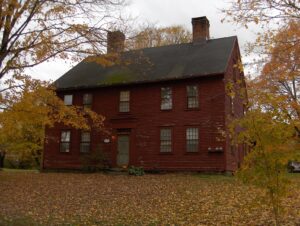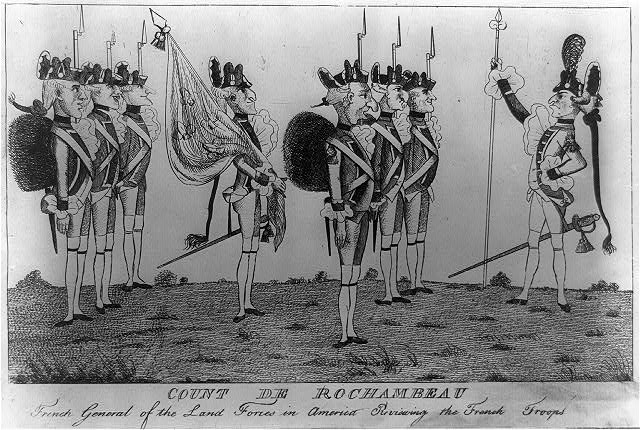Jean-Baptiste-Donatien de Vimeur, comte de Rochambeau, was a French nobleman and army general who contributed significantly to the Colonial army’s victory in the war for American independence. Rochambeau’s French troops not only forced the British army to change their military strategy in the war, they directly contributed to George Washington’s victory at Yorktown, Virginia, which decimated Great Britain’s ability to wage war in the South. The story of Rochambeau in America is intimately tied to the town of Andover.
In June of 1781, General Rochambeau and his armies were in the midst of an epic march from Rhode Island to Yorktown, to aid General Washington in what became one of the most decisive battles of the Revolutionary War. On a stretch of the journey passing through Connecticut and meant to move troops from Windham to Bolton, four regiments of the French army marched through an area that later became the town of Andover. Each regiment consisted of between 1,000 and 1,500 men, as well as oxen-drawn artillery and baggage carts.

White’s Tavern – By Sphilbrick (2010), Wikimedia Commons. Used through a CC BY-SA 3.0 license.
The French found this particular leg of the journey exhausting, due mostly to the poor quality of the roads. Several of the regiments ended up camping along the Hop River near what today is the border of Andover and Bolton. Some of the officers who did not camp with the troops stayed at Daniel White’s Tavern on Hutchinson Road in Andover. This was not, however, the first time the French army made an appearance in Andover.
Local Tavern Hosts Colonists’ Allies
Back on September 20, 1780, General Rochambeau dined at White’s Tavern, sometimes called the tavern at the sign of the black horse, on his way to a meeting in Hartford with George Washington. Admiral Ternay, the commander of French naval forces in America, accompanied him. The two men returned to White’s Tavern on their way back from the meeting as well. Eight months later, Rochambeau had another meeting with Washington (this time in Wethersfield), and he once again stopped to dine at the tavern. The marquis de Chastellux, a French military officer who acted as the principal liaison between Washington and Rochambeau throughout the war, accompanied Rochambeau through Andover.
After witnessing the surrender of British forces at Yorktown, Rochambeau and his troops marched back to Newport, Rhode Island. In November of 1782, as part of this return march, Rochambeau once again came through Andover, and once again, his troops camped near the Hop River.









